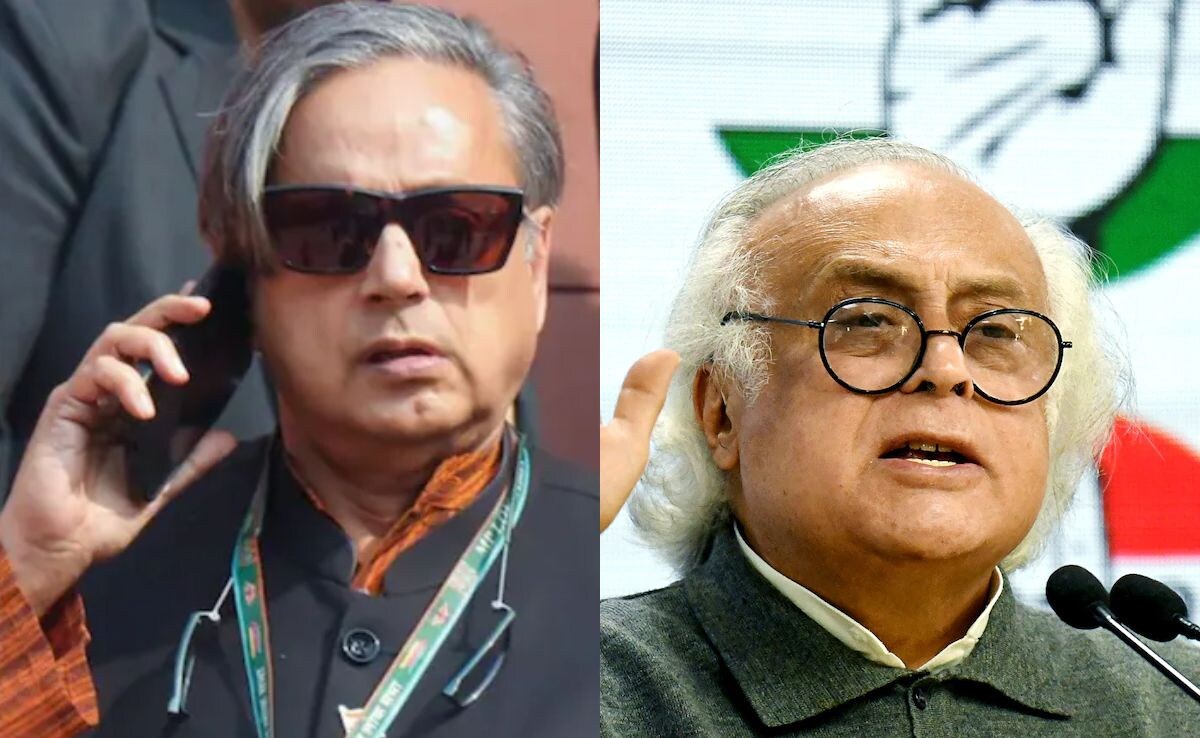Internal Tensions Surface in Congress as Shashi Tharoor Defends India’s Sovereignty
In a stunning display of party discord, Congress leader Shashi Tharoor is currently facing mixed reactions following his recent comments regarding India’s diplomatic stance toward Pakistan. As the ongoing tensions between the two countries mount, Tharoor’s statements have not only drawn applause from certain quarters but have also incited criticism from his own party members. The situation has created a significant rift within the Congress party, showcasing a complex web of political dynamics.
Tharoor, the Thiruvananthapuram MP and former Union Minister, sparked a debate when he articulated India’s position, asserting that the country would never allow third-party mediation in its bilateral issues with Pakistan. His remarks came after a press conference held by Congress leaders Jairam Ramesh and Pawan Khera, where Ramesh distanced the party from Tharoor’s statements, emphasizing that “it is his opinion.” The Congress party, while supporting the government’s actions in response to the Pahalgam terror attack on April 22, has been actively questioning the role of the United States in mediating a ceasefire, a stance that contradicts Tharoor’s assertions of India’s autonomy.
The fallout from Tharoor’s comments has become a focal point of debate within the Congress party, indicating a struggle to maintain a united front on foreign policy issues. Ramesh emphasized the need for clarity on the U.S. involvement in the ceasefire, drawing attention to Prime Minister Narendra Modi and External Affairs Minister S. Jaishankar’s silence on America’s role. As Ramesh highlighted, “For the last few days, the Congress party is asking why U.S. President Donald Trump announced the ceasefire between India and Pakistan,” raising questions about the effectiveness and repercussions of the current leadership’s strategy.
Tharoor’s Gala of Praise and Backlash
While facing criticism from his party, Shashi Tharoor has found unexpected supporters. Notably, senior BJP leader Amit Malviya lauded Tharoor for his articulation of India’s sovereignty and the government’s measured response to external aggression. Malviya’s remarks pointed out the ironic situation where a Congress leader appears to be the sole voice of reason amidst a backdrop of internal discontent.
The love from the critics has only added fuel to the fire, as opposition leaders accuse Congress of failing to consolidate its stance on vital national issues. “It is ironic that Tharoor is perhaps the only Congress leader who made sense and stood with India in this situation,” Malviya remarked on social media, further complicating the narrative of a party striving for coherence in its messaging.
As Tharoor navigates the choppy waters of party politics, he remains steadfast in his belief that India’s military actions in Pakistan were calculated and necessary. He reinforced that the government had handled the crisis with care, avoiding escalation while effectively taking out identified terror bases.
A Metaphor for Boundaries: Crossing the Lakshman Rekha
Tharoor’s situation has led to internal discussions among Congress leaders, some of whom feel he has crossed the metaphorical “Lakshman Rekha,” a term borrowed from the ancient Indian epic Ramayana that signifies a boundary not to be crossed. According to sources within Congress, the leadership convened a meeting to underscore the importance of party unity and the amplification of collective opinions rather than individual assertions.
In a statement that reflects the sentiments of party insiders, a Congress source stated, “We are a democratic party, and people keep expressing their opinions. But this time, Tharoor has crossed the Lakshman Rekha.” This commentary lays bare the underlying tensions between Tharoor and the current party leadership, including Rahul Gandhi and Priyanka Gandhi Vadra, indicating a preference for cohesive messaging over dissenting individual voices.
The Rocky Path of Shashi Tharoor: A History of Discord
Shashi Tharoor’s journey within Congress has been tumultuous, marked by numerous confrontations with the party’s leadership. Tharoor’s past experiences are marred with instances of opposition, showcasing a pattern of dissent that has characterized his tenure. In 2014, he was removed from his role as the party spokesperson after he expressed admiration for Prime Minister Modi in an article.
The tumult continued in 2022, when Tharoor was part of a group of 23 senior party leaders calling for significant organizational changes, a move that led many of those leaders to exit Congress altogether. Tharoor’s bid for the party presidency against Mallikarjun Kharge, who had support from the Gandhi family, demonstrated his desire for reform, though he ultimately lost the election yet garnered significant support, indicating his status as a respected figure within party ranks.
A Call for Unity and Strategic Direction
As the Congress party grapples with the ramifications of Tharoor’s comments, the overarching message emphasizes the necessity of unity amid internal strife and external challenges. The interplay of opinions and the subsequent fallout reflects the broader struggle within the party to adapt to the dynamic political landscape of India.
The situation urges Congress to adopt a more coherent strategy in foreign policy matters. Given the current geopolitical climate and the growing tensions in South Asia, it is essential for Congress to present a united front that resonates with both party members and the public. Tharoor’s voice signifies a critical dimension of the discourse, but it must align with the collective messaging of the party to foster trust and credibility.
In an era where political narratives can quickly shift, fostering solidarity within Congress is paramount, particularly as it seeks to address pressing national concerns. As the situation unfolds, it will be crucial for party leaders to navigate these complexities while ensuring they uphold the principles of democracy and collective representation.
This article draws upon insights from various reputable sources including the[Hindu](https://www.thehindu.com) and[Times of India](https://timesofindia.indiatimes.com) for a more comprehensive understanding of the current political landscape.
DISCLAIMER
We have taken every measure to ensure that the information in this article and on our social media platforms is accurate, verified, and obtained from reliable sources. For feedback or complaints, please contact us at info@hamslive.com.


